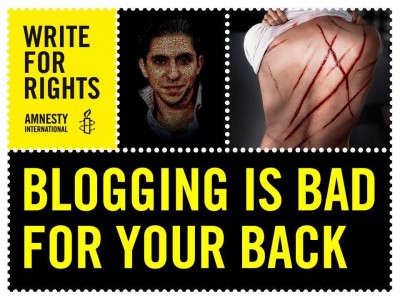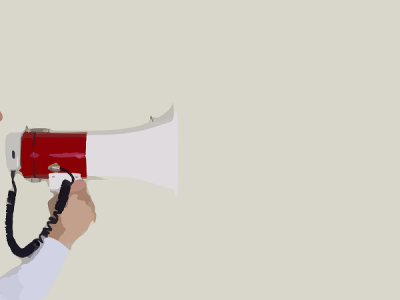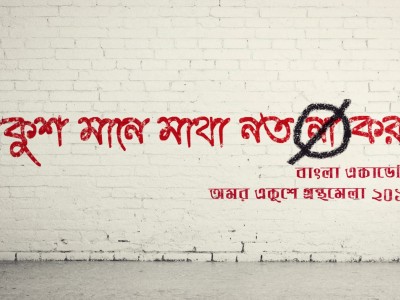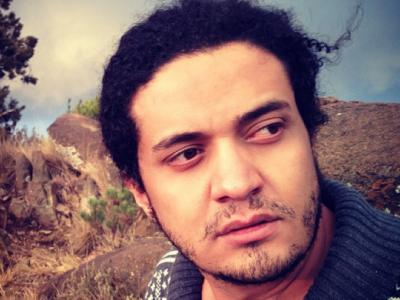Stories about Law from February, 2016
Saudi Arabia Sentences Twitter User to 10 Years in Prison and 2,000 Lashes for Apostasy
Saudi Arabia has sentenced a Twitter user to 10 years in prison in addition to 2,000 lashes for publishing 600 tweets "which spread atheism" online.
The Malaysian Insider News Website Blocked by Authorities for Posting ‘Unverified’ Report on Government Corruption
"Such unilateral action could also be construed as an attempt to intimidate the media against running critical news reports."
Ukrainian Court Equates Social Network Profile With Mainstream Media
The social media pages containing "calls to overthrow authorities" were determined by the court to be "mass media" because they were public and accessible to an unlimited number of people.
Egyptian Writer Ahmed Naji Sentenced to Two Years in Prison for his “Sexually Explicit” Novel
A Cairo appeals court sentenced Egyptian novelist and journalist Ahmed Naji for two years in prison for publishing a chapter containing “sexually explicit” scenes from his novel The Guide of Using Life in a magazine. Naji, accused of violating public decency, was acquitted in the first trial in December, which...
Hard Labor for Woman Who Reposted Online Criticism of Russia's Actions in Ukraine
A Russian court found Vologzheninova guilty of "discrediting the political order" and of "inciting enmity" by reposting or liking online material critical of Russia’s actions in Crimea and in Donbas.
Bangladeshi Authorities Arrest Publisher and Shut Down Book Fair Booth for ‘Hurting Religious Sentiments’
Bangladesh’s constitution enshrines the right to free expression, and atheists have the same rights as other citizens. But authorities have done little to stop attacks against those critical of religion.
Malaysian Police Threaten Internet Users for Sharing Clown Memes of Prime Minister
"Public scrutiny is part of the democratic process that serves as the foundation of Malaysia. Satirical images and comments made against government official[s] should not be considered as a crime."
A Colombian Official Takes Short-Lived Legal Action Against a Journalist Over His Tweets
"...limitation of freedom of expression must be necessary and proportionate, that is, it must be the only and most effective means, something which is not true in this case."
Kremlin Censor Finally Brings Down the Hammer on the RuNet’s Pluckiest Freedom Advocates
Government censors have blocked the website of Russian digital rights organization RosKomSvoboda for a page with instructions on how to circumvent online censorship and access blocked websites.
“A Good Day for the Internet Everywhere”: India Bans Differential Data Pricing
Indian Telecom Regulatory Authority bans differential data pricing and Facebook's large plans for Free Basics come to an end.
Saudi Arabia Reduces Ashraf Fayadh's Death Sentence to Eight Years in Prison and 800 Lashes
Saudi Arabia overturned the death sentence of Palestinian poet Ashraf Fayadh, accused of apostasy and other blasphemy-related offenses which he denies, to eight years imprisonment and 800 lashes.
Russian Social Network VK Claims to Protect Users From Warrantless Surveillance
VKontakte's Ukrainian spokesperson says the social network abhors censorship and only shares user data with secret services when presented with court orders. The website's turbulent history paints a different picture.
New Ukrainian Draft Bill Seeks Extrajudicial Blocking for Websites Violating Copyright
A new bill in the Ukrainian parliament wants to replace the common pre-court notice and takedown procedure for copyright violations online with a faster blocking mechanism bypassing the courts.
Russia and Chile Join the Global Campaign to Save a Saudi Poet From Execution
Poets and activists in Moscow and St Petersburg expressed their solidarity with Ashraf Fayadh, who's been sentenced to death in Saudi Arabia. Similar events were held in Chile and Mexico.














